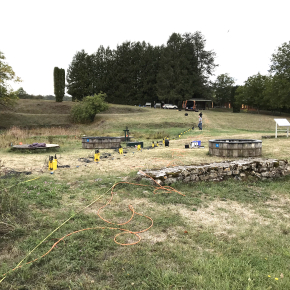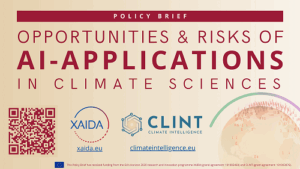All for One Ocean Summit
The One Ocean Summit, event initiated by the President of the French Republic, will take place from the 9th to the 11th of February 2022, in Brest. Supported by the United Nations, the event is part of the French Presidency of the Council of the European Union. Workshops and forums will aim at bringing the international community together and insist on the urgent need to act to protect the ocean.
The ocean plays a central role in the Earth’s climate, and the changes undergoing as a result of climate change have and will have repercussions on many aspects of our societies. Rising sea levels highlights the situation of flood-prone areas and raise concerns about coastal erosion. Other risks relate to biodiversity, such as rising temperature and the absorption of CO2, which harms coral reefs and species that need limestone to form their shells. But the increased exploitation of marine resources, overfishing, is also at the centre of reflections on our relationship with the ocean. The One Ocean Summit is an opportunity to raise awareness among decision-makers of the essential role played by the ocean for both climate and biodiversity by inviting those who study it on a daily basis, determined to convey strong messages to encourage its protection.
“The ocean absorbs 90% of the Earth’s excess heat due to the emission of greenhouse gases from human activity,” explains Sabrina Speich, oceanographer at the Laboratory of Dynamic Meteorology (LMD-IPSL) at the Ecole Normale Supérieure.The ocean and marine biodiversity undergo changes and, in turn, have an effect on climate and societies. The increase in temperature has for instance an effect on fishing habits, in addition to the heat waves that our oceans can experience. “On average, fish migrate and move year after year to colder regions because they follow temperatures to which they are accustomed, thus impacting on fishing zones,” she says.
A changing ocean
The ocean is therefore affected by climate change and in turn affects the evolution of our climate. Some points are still surrounded by considerable uncertainties. The future of the ice caps, which could melt faster than currently predicted, or changes in the deep ocean are but two examples. The question of heat transport is also a central issue, regarding oceanic currents but also atmospheric circulation. “Climate is not a set of separate elements, it is an entity that requires a more holistic approach,” specifies Sabrina Speich, stressing the need to better understand the interactions between the ocean surface and the atmosphere. These parts of our climate are interconnected: by transferring heat and water vapor to the atmosphere, the ocean influences its circulation.
As for regional aspects and events near the coast, the matter of impacts becomes more and more primordial. It is mainly in these regions that the effects of climate change (sea level rise, coastal erosion, rise in water temperature…) meet and resonate with strong pressure from human activities (accidental pollution, pollutants carried by rievrs, extraction of mineral resources, fishing, tourism and marine transport). Thus, scientific experts from various disciplines and policy-makers need to cooperate to put in motion solutions. These interactions are a central issue of this decade, not only for the ocean but more generally regarding adaptation to climate risks. “There is a need for science, but above all there is a need for international cooperation and access to knowledge, in order to share information with decision-makers and help them prepare to changes yet to come while heading towards a sustainable future,” insists Sabrina Speich. Local actors lack the information they need to organize, especially in the long term. Building dykes to deal with rising sea levels may seem like a useful action, but they can also be destroyed quickly and even accelerate coastal erosion with a rather negative effect. The lack of information or organization between the different actors can then cause great structural damage, reveals the researcher while emphasizing on the “need to step back and look at things in the long run.”
Pour en savoir plus
Suivre le One Ocean Summit et découvrir le programme
A lire sur IPSL GIEC : L’océan en surchauffe
Découvrir les services d’observation de l’océan, avec Drôle d’OISO dans l’océan Indien et Changement climatique : une addition salée pour l’océan






